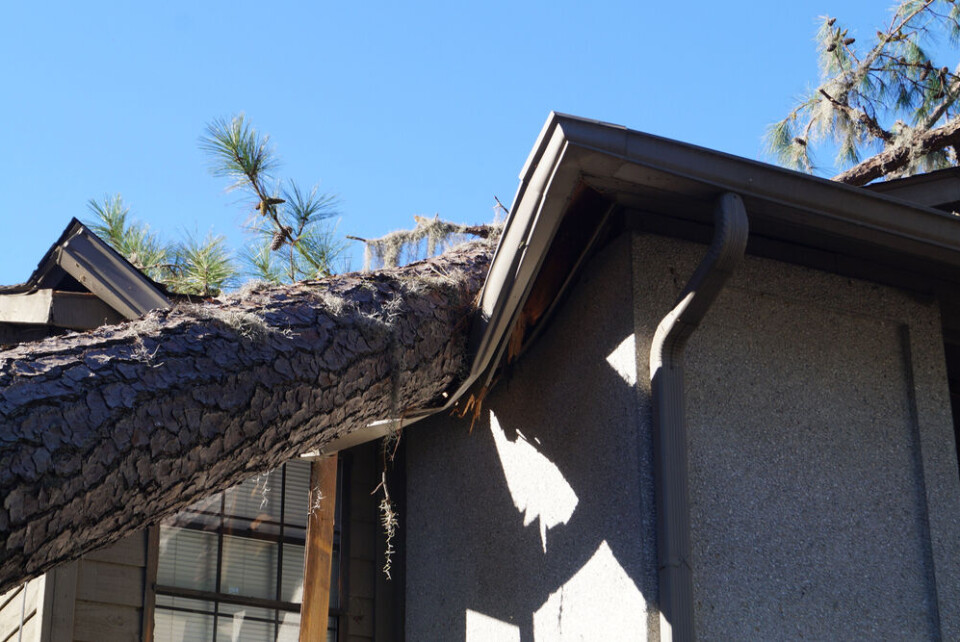-
What snow conditions look like for skiers across French Alps and Pyrenees
Ski resorts are expected to get busier as school holidays begin this weekend
-
Weather alerts continue: outlook for weekend in France
Blustery rain forecast in many areas and only limited brighter spells
-
Flooding: alerts in place for Morbihan and Gironde
Driving is not recommended as heavy rain is expected on ground that has been saturated for days
How do I make insurance claim after weather damage to French home?
As with drought damage, insurance payments may not arrive until the commune has been declared a drought disaster zone

Reader Question: If our home is subject to damage from flooding or storms do we have to wait and see if a natural disaster zone is declared for our area or should we make a normal insurance claim first?
This will depend on what exact kind of damage is involved.
Many insurance policies will have a garantie tempête (storm cover) clause, which will cover you in the event of damage from hail, gusts of wind, torrential rain etc, providing certain conditions were met (for example winds being a certain speed).
For other natural disasters such as floods or landslides, compensation may not be paid unless you have a multirisque habitation (multi-risk) policy including natural disasters (which most do) and your commune is declared by official decree to have been subject to a natural disaster (catastrophe naturelle).
Our recent article about an update to the ‘natural disaster zones’ declared by France – largely relating to 2022’s drought – reviews information on how to deal with an insurance claim regarding damage after a natural disaster.
In most cases insurers will not pay for damage claims resulting from natural disasters until communes are officially declared as such, even if damage to a property is severe.
However, there are some things you can do to help with your claim and it is good to be ready to submit it as quickly as possible.
What to do to help your claim
Firstly, it is always worth letting your insurance company know about damage as soon as it happens.
Even if the damage to your property will not be covered until your commune is placed on the natural disaster zone list, informing your insurance company of the damage means they will have a written record of it (and you will have a written record that you informed them).
This can be a useful safeguard in the event that the natural disaster is not ultimately recognised and you want to try to claim on other guarantees in your policy.
You should also let your local commune know about the damage – this may increase their chances of convincing the authorities that the commune deserves to be on the list.
In the weeks following the disaster you should compile evidence of the damage, if possible using an official report (from a bailiff) as well as before and after photos of your home.
Read more: Drought damage claims could get easier due to reforms and Météo-France
Once the Journal Officiel is updated
After this, you will have to wait until your commune is declared to be subject to a natural disaster. Lists of recent disaster zones are updated a number of times a year, with officials visiting communes which have asked to be added and assessing damage in the area.
Usually, your mairie will contact you directly to let you know (if you have informed them about the damage to your property), or you may find the information online.
The Connexion and other French media usually write articles informing readers when lists have been updated, and local media is likely to discuss changes in your area also.
After this you have to contact your insurer to officially submit your claim. Previously this had to be within 10 days of the Journal Officiel being updated, but this has been changed to 30 days.
Even if you have already notified your insurer about the damage, you should do so again, making sure you have an official case number or record of it, ideally with a lettre recommandé avec un avis de réception (recorded delivery letter with acknowledgement of receipt).
A surveyor should come to check the damage, after which the insurance company should make a compensation offer within one month.
If you agree this, you can sign it and will receive your compensation within 21 days. Alternatively if you were offered repairs they should be carried out no later than 30 days after signing the contract.
If you do not agree with the compensation amount you can obtain a second opinion from another surveyor, either at your own expense or at a split cost with your insurer – depending on the policy you have – which can cost around €1,000.
If you still disagree after seeing all the reports - which the insurance company are required to send to you - you can call in a third expert, a mediator, or take the case to court, although this will be at your own expense.
It is different for lightning strikes
Insurers may ask for additional proof for certain kinds of damage from extreme weather; this is often the case, for example, for lightning strikes on buildings.
If you are making a claim after lightning damage – either directly or indirectly affecting your property – you will have to compile a similar dossier recording damage, and inform your insurer of this.
You will usually also need an official certificate from Météo France – a certificat d’intempérie – stating there was stormy weather and lightning in your area at the time damage was sustained.
The certificate costs €62.50, see the official Météo Francewebsite.
For certain other claims for storm damage – even with a garantie tempêteclause, you may have to provide your insurer with this certificat d’intempérie.
Read more: Storm damage in France: How to manage an insurance claim for your home
























